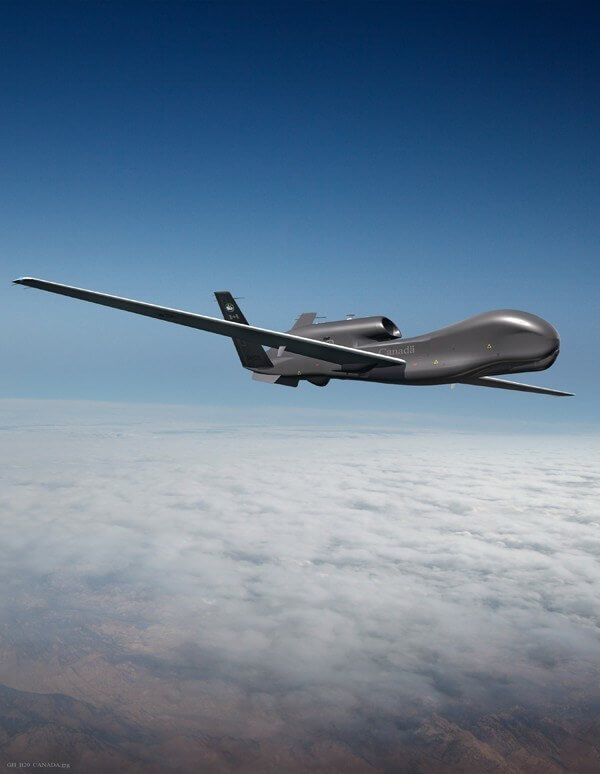In April the Canadian House of Commons passed an 'austerity' budget that included the loss of 19,200 public sector jobs, cutting federal programs by $5.2 billion per year and raising the retirement age from 65 to 67.
Yet Canada is significantly less austere when it comes to their military spending. This week it was announced that Canada is purchasing a 'Polar Hawk' from US defence contractor Northrop Grumman. The 'Polar Hawk' is an unmanned 'spy' airplane that will be used to survey the Arctic territory Canada claims ownership of. The likely spend is estimated to be between $30-$50 million (and that's just the purchasing costs).
The US already own just such an aircraft to survey their own Arctic territory. Both Canada and the US are concerned with securing access to and profit from the fossil fuels beneath the Arctic ice. In theory reductions in ice cover (due to climate change) make the exploitation of offshore oil possible but a new report by Platform, Fairpensions and Greenpeace ( makes clear that huge questions remain about the feasibility of Arctic oil extraction. In addition exploration for oil and gas in Arctic waters poses enormous risks: existing spill containment methods are ineffective in icy waters and darkness and storms make drilling sites inaccessible for months on end. The US coastguard commandant Admiral Robert Papp Junior admitted they would be unable to respond if there was a major spill in Arctic waters: "There is nothing up there to operate from at present…no way we could deploy several thousand people as we did in the Deepwater Horizon spill.”
Such concerns are overlooked by Canada whose plans also included buying patrol vessels to fly the Canadian flag in the region. They are not the first nation to use military might in the Arctic to wave a flag. In 2007 Russia sent a submarine to plant its flag in the North Pole. Such flag flying squabbles ensure national governments continue to spend vast sums on military resources so they can assert control over oil and gas rich regions. Russia also recently announced that it was to re-open a number of Arctic air bases.
Governments claiming ownership over various sections of Arctic ice attempted to win the support of their citizens by arguing control of the region is necessary for both national and energy security. Duke Dufresne, a representative of Northrop Grumman – the company that is building the Polar Hawk for Canada, described the aircraft as an essential part of the countries defence strategy allowing Canada to “extend its reach to patrol large geographical areas, keeping constant vigil over the nation's vast Arctic region from coast to coast in a single mission”.
The irony is if Arctic oil extraction does ever prove feasible it will make Canada far less secure by exacerbating tensions in the region, creating unprecedented environmental risks and threatening the rights and security of those who have the greatest claim to the natural resources of the Arctic: the one million strong indigenous population.
So what exactly is made more secure by Arctic oil extraction? Well, for one, the claim that there are enough global oil reserves to support continued economic growth. This in turn reduces the impetus to switch to alternative, low carbon forms of energy and that will increase insecurity for every country.
